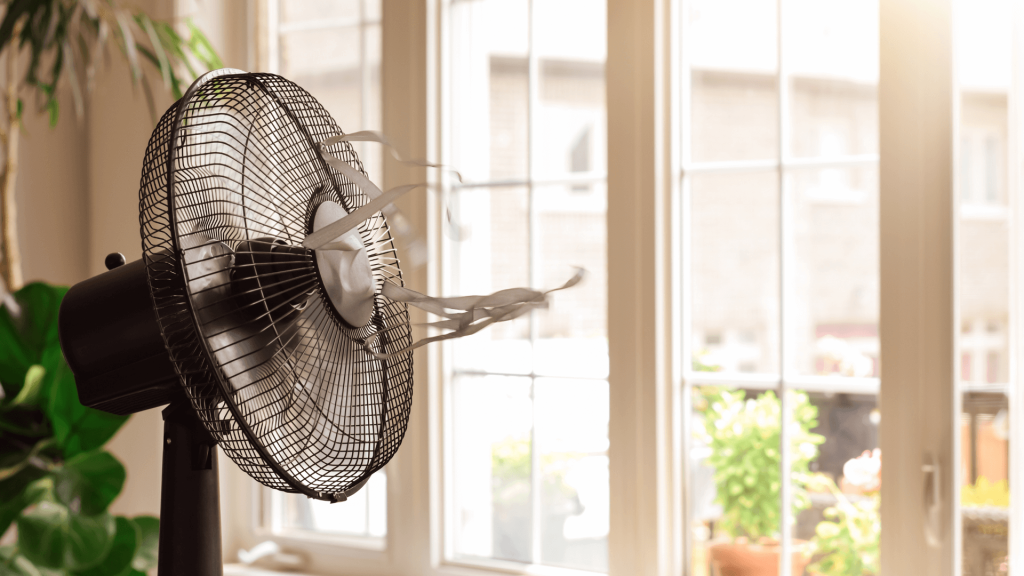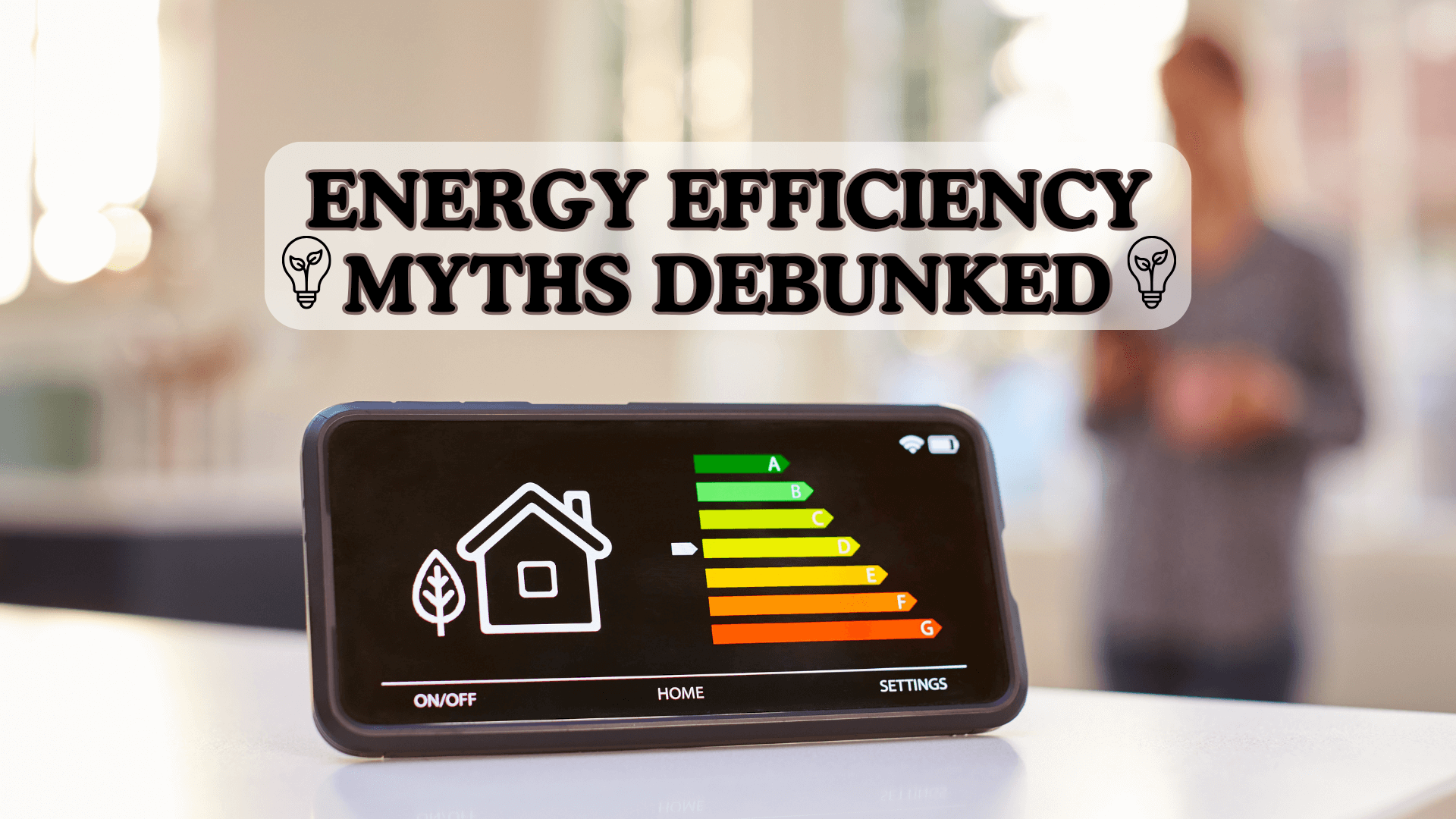Display Table of Contents
In the UK, where weather patterns vary dramatically through the year, adopting energy-saving measures tailored to each season is crucial. This article will explore practical and efficient energy-saving tips specifically designed for the UK households, ensuring both environmental and financial benefits.
Spring: Embracing the Changing Climate
Maximise Daylight
Optimising natural daylight in your home is not only energy-efficient but also enhances overall well-being.
Clean Windows: Clean windows allow more sunlight to enter your home. Regularly clean both the inside and outside of windows to ensure maximum transparency. Dirty or smudged windows can obstruct natural light, necessitating the use of artificial lighting during the day.
Reflective Curtains: Installing reflective or light-coloured curtains can significantly enhance natural light within your living spaces. These curtains bounce sunlight deeper into the room, reducing the need for artificial lighting. Moreover, they provide privacy without compromising on the influx of natural light, making them an ideal choice for energy-conscious homeowners.
Strategic Furniture Placement: Consider arranging your furniture to maximise the exposure to natural light. Positioning seating areas, workspaces, and dining tables closer to windows allows occupants to benefit from ample daylight, reducing the need for electric lighting during the day.
Solar Tubes and Skylights: For spaces with limited access to exterior windows, consider the installation of solar tubes or skylights. These innovative solutions capture and channel natural light into interior rooms, effectively illuminating spaces that would otherwise rely on artificial lighting.
Daylight Sensors: Incorporating daylight sensors into your lighting system can automate the adjustment of artificial lighting based on natural light availability. These sensors can dim or turn off lights when sufficient daylight is present, ensuring that energy-efficient lighting practices are maintained throughout the day.
Efficient Heating
With the residual chill of winter, ensure your heating system, particularly your boiler, is functioning efficiently. Spring is an ideal time for maintenance checks.
Boiler Maintenance: Spring is an ideal time for servicing your boiler. Regular checks ensure it operates efficiently, saving energy and reducing costs.
Radiator Bleeding: Bleed your radiators to remove trapped air, ensuring they heat up effectively and use energy efficiently.
Thermostat Check: Verify that your thermostat is accurately calibrated for the milder spring temperatures, preventing unnecessary heating.
Insulation Review: Good insulation is essential for heat retention. Spring is a good time to check and upgrade insulation to minimise heat loss.
Upgrade to Energy-Efficient Appliances
Upgrading to energy-efficient appliances is a straightforward and impactful way for UK residents to reduce energy consumption, save money, and support environmental sustainability.
Understanding Energy Labels: Energy labels start from a short green bar labelled ‘A’ and cascade down through the rainbow (and alphabet) to a long red bar, labelled ‘G’. This scale represents the product’s energy consumption. The green bar being the most efficient and red the poorest.
Long-Term Savings: Although energy-efficient appliances might have a higher upfront cost, they offer significant long-term savings by reducing energy bills. Over time, the initial investment is offset by the lower operational costs.
Reduced Carbon Footprint: By using less energy, these appliances contribute to lower carbon emissions, aligning with the UK’s environmental goals and helping combat climate change.
Advanced Features: Modern energy-efficient appliances often come with advanced features that enhance functionality and convenience, from programmable washing machines to refrigerators with better temperature control.
Government Incentives: The UK sometimes offers incentives or rebate schemes for purchasing energy-efficient appliances, making it an opportune time to upgrade.
Smart Thermostats
Adapting to the fluctuating temperatures of the UK’s spring season is made more efficient with the installation of smart thermostats. This technology offers an intelligent way to manage home heating, balancing comfort with energy conservation.
Adaptive Temperature Control: Smart thermostats can learn your schedule and adjust the heating automatically. They can lower the temperature when the house is empty and warm it up before you return, ensuring efficient energy use.
Remote Adjustments: With a smart thermostat, you can control your home’s temperature remotely using a smartphone app. This feature is particularly useful during spring’s unpredictable weather, allowing you to adjust settings on-the-go.
Energy Usage Insights: These devices provide valuable insights into your energy usage patterns, helping you identify opportunities to save energy. By understanding your heating habits, you can make more informed decisions about your energy use.
Compatibility with Home Assistants: Many smart thermostats are compatible with home assistants like Amazon Alexa or Google Home, enabling voice control and integration into your smart home ecosystem.
Easy Installation and Maintenance: Smart thermostats are generally easy to install and maintain. Many UK households find them to be a user-friendly upgrade from traditional thermostats.
Summer: Cool and Efficient Living
LED Lighting
During the UK’s summer months, when daylight hours are extended, switching to LED bulbs offers an efficient lighting solution. Adopting LED lighting in the summer aligns with the UK’s commitment to energy conservation and environmental protection, offering a practical step towards a more sustainable lifestyle.
Lower Heat Emission: LED bulbs emit significantly less heat compared to traditional incandescent bulbs. This feature is particularly beneficial during the summer, helping to maintain cooler indoor temperatures and reducing the need for additional cooling.
Energy Efficiency: LEDs are known for their high energy efficiency. They use up to 90% less energy than traditional bulbs, leading to substantial energy savings, especially important during longer daylight hours when lights are used less frequently.
Longer Lifespan: LED bulbs have a much longer lifespan than traditional bulbs. This means fewer replacements, less waste, and more cost savings over time.
Eco-Friendly: Switching to LED lighting is a simple yet effective way to reduce your carbon footprint. Their lower energy consumption and longer lifespan mean reduced environmental impact.
Wide Range of Options: LED bulbs come in various shapes, sizes, and colours, offering versatility for different lighting needs and preferences in UK homes during summer.
Fans over Air Conditioning
In the UK, where air conditioning units are less common in homes, the use of standing or ceiling fans during the summer months presents a more energy-efficient and cost-effective alternative.
Lower Energy Consumption: Fans consume significantly less electricity compared to air conditioning units. This lower energy usage translates into reduced utility bills and a smaller carbon footprint.
Effective Air Circulation: Both standing and ceiling fans are effective at circulating air within a room, creating a cooling breeze that can make the environment feel more comfortable without drastically lowering the room temperature.
Versatility and Portability: Standing fans offer the advantage of portability, allowing you to move them to where they are needed most. This flexibility is particularly useful in UK homes where certain rooms may require more air circulation than others.
Ceiling Fans for Even Air Distribution: Ceiling fans are advantageous in evenly distributing air throughout a room. Some models come with a reverse function, useful for redistributing warm air in the winter, further adding to further adding to their year-round utility.
Aesthetic and Space-Saving Options: Modern fans are available in a variety of designs, fitting well into the aesthetic of different homes. Ceiling fans, in particular, are space-saving as they do not take up floor or table space.
Draught-proofing
In summer, sealing gaps in windows and doors is a straightforward yet effective way to enhance home cooling efficiency. Here’s an expanded look at this method:
Reduced Heat Ingress: Sealing gaps prevents warm outside air from entering, helping to maintain cooler indoor temperatures. This is particularly beneficial during the UK’s warmer days, keeping your home naturally cooler.
Energy Savings: By keeping the indoor environment cooler, there is less reliance on electric fans or other cooling devices, leading to reduced energy consumption and lower utility bills.
Improved Air Quality: Sealing gaps not only keeps warm air out but also reduces the ingress of dust and pollen, which can be more prevalent during the summer months, thus improving indoor air quality.
Cost-Effective Solution: This method is a cost-effective way to enhance home cooling. Weather stripping or caulking to seal gaps are inexpensive and can be easily applied as a DIY project.
Year-Round Benefits: While particularly useful in summer, sealing windows and doors benefits your home throughout the year by preventing drafts and reducing heat loss in colder months.
Adjust Water Heating
Adjusting the temperature of your water heater during the summer months is a practical measure to reduce energy consumption.
Energy Efficiency: Lowering the water heater temperature reduces the energy required to heat the water, leading to energy savings. This is particularly effective during summer when the demand for hot water is generally lower.
Reduced Heat Loss: A lower temperature setting minimises heat loss from the water heater to the surrounding environment, which can contribute to a warmer indoor climate – an undesirable effect during warmer months.
Prolonged Appliance Lifespan: Operating your water heater at a lower temperature can also extend its lifespan by reducing wear and tear on the system components.
Safety Benefits: Lowering the water heater temperature can reduce the risk of scalding, a particularly important consideration in households with children or vulnerable individuals.
Simple Adjustment: Adjusting the water heater temperature is usually a straightforward task, often involving just a simple dial turn on the heater itself. This makes it an easy, yet effective way to save energy during summer.
Autumn: Preparing for the Colder Months
As autumn arrives in the UK, it’s the opportune time to prepare homes for the colder months ahead. Here’s an expanded look at key strategies for enhancing energy efficiency during autumn:
Insulation Upgrades: Autumn is an ideal season for insulation upgrades, especially in older UK buildings which may have less effective insulation. Upgrading loft insulation can prevent significant heat loss through the roof, a common issue in many homes. Similarly, wall insulation, whether it’s cavity wall or solid wall insulation, can dramatically reduce heat escape. These upgrades not only make homes warmer but also reduce the reliance on heating systems, leading to lower energy bills and a more comfortable living environment.
Thermostat Management: With the drop in temperature, a programmable thermostat becomes an essential tool in efficiently managing home heating. These devices allow for setting different temperatures for different times of the day, ensuring that heating is only used when necessary. For instance, lower temperatures can be set during the night or when the house is unoccupied, preventing unnecessary heating and thus conserving energy. Modern smart thermostats can even learn your schedule and adjust settings automatically, providing both convenience and efficiency.
Boiler Efficiency: Servicing your boiler in autumn ensures it is ready for the increased demand of winter. A well-maintained boiler operates more efficiently and is less likely to break down during the colder months. If your boiler is older than ten years, it may not be as efficient as newer models. Upgrading to a high-efficiency boiler can significantly reduce energy usage and emissions, while providing better and more reliable heating. This upgrade, although a larger investment initially, can lead to substantial long-term savings.
Utilising Solar Heat: Making the most of natural solar heat during autumn can reduce the need for artificial heating. During daylight hours, open curtains and blinds to allow the sun to naturally warm your home. As dusk falls, closing them provides an additional layer of insulation, helping to retain the heat gathered during the day. This simple practice not only utilises renewable energy but also reduces your heating requirements, saving energy and costs.
Winter: Sustainable Heating Techniques
As winter settles in across the UK, adopting specific energy-saving strategies becomes vital. Here’s an extended look at effective methods to enhance heating efficiency during the colder months:
Selective Heating: In the UK’s moderate winter climate, using space heaters in frequently used rooms can be more energy-efficient than heating the entire house. This targeted approach allows for heating only the areas that are in use, such as living rooms or bedrooms, avoiding the wasteful heating of unoccupied spaces. Space heaters can quickly warm up a room, and when used responsibly, they can significantly reduce overall heating costs. It’s important, however, to ensure that these heaters are used safely and are not left unattended.
Ceiling Fan Direction: Reversing the direction of ceiling fans during winter can aid in better heat distribution. By setting the fan to rotate clockwise at a low speed, warm air that naturally rises to the ceiling is pushed down along the walls and back into the room. This circulation can make a room feel warmer, allowing for lower settings on your central heating, thus saving energy. This simple adjustment can be particularly effective in rooms with high ceilings.
Secondary Glazing: Installing secondary glazing on windows adds an extra layer of insulation, trapping heat inside and keeping the cold out. This is especially beneficial for older UK homes with single-glazed windows, which are prone to significant heat loss. Secondary glazing can be a cost-effective alternative to double glazing, as it provides similar benefits in terms of insulation and noise reduction without the need for complete window replacement.
Thermal Drapery: Utilising heavy or thermal curtains during the winter months is an effective way to combat heat loss through windows. These curtains act as an additional insulating layer, keeping warm air inside and cold air out. Drawing them in the evenings, particularly in rooms with large or multiple windows, can make a noticeable difference in maintaining a comfortable temperature. Additionally, thermal curtains can also help reduce noise and block out light for improved sleep quality.
Enhancing Home Energy Efficiency in the UK
Improving energy efficiency in UK homes is not only beneficial for the environment but also for household budgets. Here’s some effective measures:
1. Energy Audit: Conducting a professional energy audit can help identify specific areas where your home can be more energy-efficient, a valuable step for UK homes of varying ages and designs.
2. Smart Meters: Installing a smart meter provides real-time information on energy usage, encouraging more conscious energy consumption.
3. Solar Panel Installation: Though the UK isn’t the sunniest place, solar panels can still significantly contribute to your home’s energy efficiency, especially during the longer summer days.
4. Water Conservation: Implementing water-saving measures such as low-flow showerheads and tap aerators can significantly reduce energy consumption in heating water.
Year-Round Energy Conservation Habits
Adopting consistent energy-saving habits is key to reducing overall consumption in UK homes throughout the year. below are some effective practices:
1. Mindful Appliance Use: Be conscious of how and when you use appliances. Utilise off-peak energy tariffs, common in the UK, to run appliances like washing machines and dishwashers.
2. Efficient Cooking Methods: Use pressure cookers or steamers which are energy efficient. When using an oven, avoid opening the door frequently as it leads to significant heat loss.
3. Embracing Natural Solutions: Dry clothes outdoors in warmer months rather than using a tumble dryer, a common energy-intensive appliance in UK homes.
4. Regular Maintenance: Keep your home’s heating and cooling systems well-maintained. This includes bleeding radiators and ensuring your home is free from draughts.
Adapting these energy-saving measures can lead to substantial reductions in your carbon footprint and energy bills. Moreover, these efforts significantly contribute to the UK’s overall environmental goals, making each household a vital player in the pursuit of sustainability.









